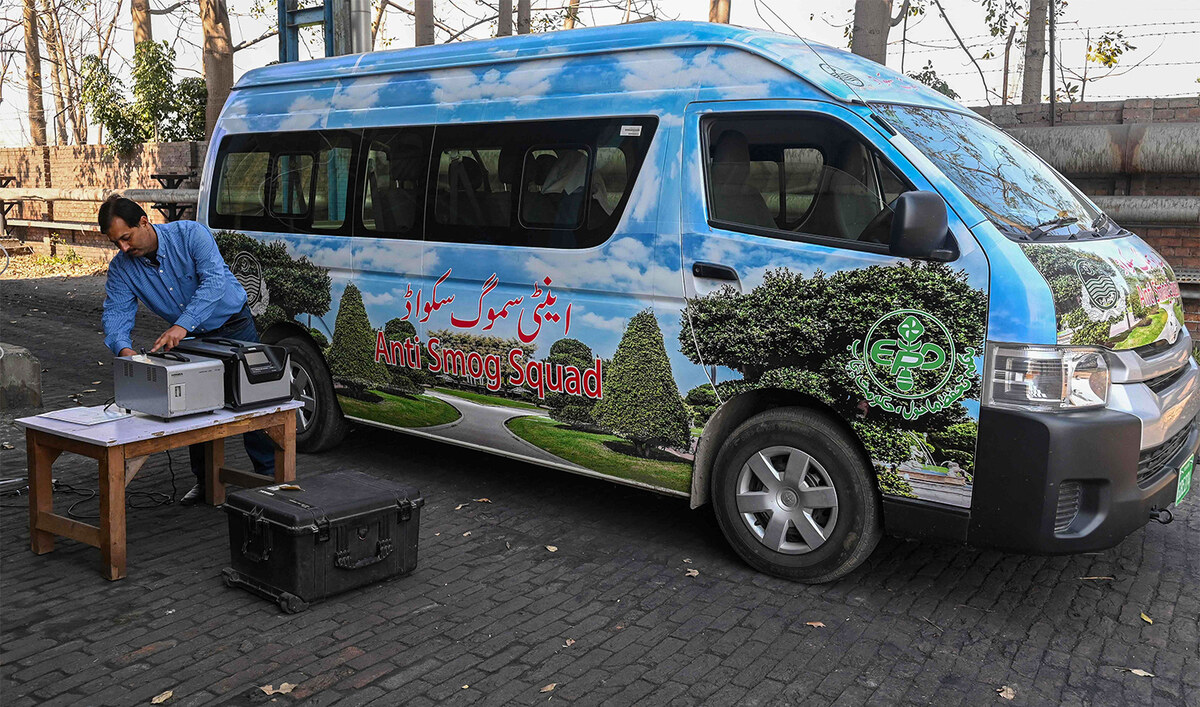Cutting waste would help us cut carbon emissions

https://arab.news/84me2
We are living in a moment of profound global disorder, more and more painfully visible every day. Humans have become a danger to each other, to the planet, and to themselves.
Our attention is ruled so intensely by the conflicts raging in Gaza, in Lebanon, in Ukraine, between Israel and Iran, between China and Taiwan, that the subject of the ongoing destruction of our environment has almost disappeared.
Instead, we hear talk of investing further in weaponry and more sophisticated destruction. The crucial objective of deeply cutting carbon emissions hardly registers anymore on our radar.
But all around the world we are witnessing heavy climate disturbance and extreme weather phenomena. We have recently seen yet more hurricanes rip through the US.
Climatologist Michael Mann says hurricanes have become 40 percent more deadly in recent years due to climate change, while a recent report shows that rain events have become 20-30 percent stronger and winds 10 percent stronger.
We do not need to be told this, as we have all experienced disturbed weather and climate wherever we live. After a historic drought in North Africa, the largest hot desert in the world, the Sahara Desert, experienced record rainfall, forming large lakes in the middle of the desert.
This unpredictability is a very ominous sign of what is to come.
Noble intentions to reduce carbon emissions, enshrined in the 2015 Paris Agreement, lie almost null and void, considering that our burning of fossil fuels has increased in recent years.
We would have to cut our carbon emissions by around 50 percent if we were to have a chance of reaching our objectives of limiting average temperature increase to 1.5 degrees Celsius, but right now we are on track for a devastating 3 C increase.
If you can imagine living with a 40 C fever every day, that is essentially what our planet would experience, regularly unleashing deadly and devastating climate phenomena.
The concept of cutting emissions may be too abstract for our simple brains to understand, so let us focus on cutting waste instead.
Waste has become a major part of our way of life and global economy. We waste so much plastic (only 10 percent is recycled) that our oceans will soon contain more plastic by weight than fish.
One-third of all food we produce goes to waste, representing almost 10 percent of global carbon emissions.
It is estimated that 10 percent of global energy production and 30 percent of water is wasted through inefficiencies in transmission.
Almost 30 percent of energy used in homes in the developed world is wasted, and, on average, 60 percent of water used for agriculture is wasted.
While humans only require 15-20 liters of water a day to meet their basic needs, the average American uses 8,300 liters (or 2,200 gallons) per day through various forms of consumption.
Clearly, just cutting waste — a simple enough concept for all to understand — would allow us to cut a sizable proportion of global carbon emissions.
Hassan bin Youssef Yassin
Just nine percent of the almost 100 billion tons of minerals, fossil fuels, metals, and biomass that enter the economy every year are recycled, while 62 percent of global carbon emissions are created during the extraction, processing, and manufacturing of goods.
Clearly, just reducing waste — a simple enough concept for all to understand — would allow us to cut a sizable proportion of global carbon emissions.
We must rethink not only our daily way of life but also the very underpinnings of our global economy, which encourages overproduction, overconsumption and tremendous amounts of waste at every turn.
For us to make any difference, we need the participation of everyone, from kindergartens to old people’s homes. It is essential that we educate a new generation to be fully aware of our actions and their direct consequences on our environment.
This is a multi-generational battle, but one in which we can make a difference quite quickly.
Our capitalist system has hit a wall, not only in terms of waste and carbon emissions, but also in the rising inequalities around the world and our need for constant growth, new gadgets and never-ending consumption.
By reducing both waste and consumption, essentially moving towards a circular economy that is able to reuse and recycle the materials we use, the Ellen MacArthur Foundation estimates we could reduce carbon emissions by almost 40 percent by 2050, while generating major economic benefits through greater efficiency and lower material costs.
According to the UN Development Program, we could lift almost one billion people out of hunger by tackling food waste and loss. Meanwhile, the International Resource Panel says improved waste management could save up to 40 percent in global energy demand by 2050.
These are all changes well within our reach, and easily understood by all.
We are all participants in the journey that humanity and our planet are on. We can either choose to close our eyes to the waste and pollution which are threatening the lives of future generations, or we can do our part.
Simply paying attention to the food, water, and energy we use and what we actually need every day can make a tremendous difference on a large scale. Our governments will also be called upon to assist us by putting in place the necessary infrastructure to recycle more, to redistribute food, and to reduce overconsumption.
This may require some initial economic discomfort for our system. But as we learn to live better lives, we will also begin to enjoy its benefits both in our individual lives and in a more efficient and less wasteful global economy. As the saying goes: “Don’t be useless. Use less.”
• Hassan bin Youssef Yassin has worked closely with Saudi petroleum ministers, headed the Saudi Information Office in Washington, and served with the Arab League observer delegation to the UN.
























